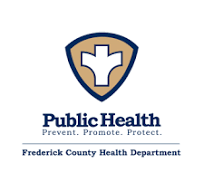Frederick County Health Department is urging residents to stay away from wild animals.

Frederick, Md (KM) Another rabid animal has been found in Frederick County. The Health Department says a raccoon picked up near Memorial Park in Thurmont has tested positive for rabies. Animal Control officers collected the raccoon on Friday, June 13th following a fight with a dog.
Alicia Evangelista, the program manager for the Community Services and Development Review Office of the Environmental Health Services, says rabies is common in Maryland. “It’s here locally. You just don’t know if you’re going to run into it. So if you were to encounter an animal acting unusually, this should be something you may want to consider because it’s not unusual to have rabies in the community, but it’s also not everywhere,” she says.
Evangelista says the county has had eight cases of rabies reported so far this year, many of them involved raccoons, but also a fox, a cat and even a cow.
Some unusual behaviors of rabid animals include a fear of water, excessive salivation. failing to eat or drink and limping. “They could be out during the daytime, and they’re nocturnal animals. So there’s not one symptom; there’s multiple symptoms. They could be walking like they are drunk. They could be literally straight up and attacking somebody,” says Evangelista. She also some of these animals could be overly friendly to humans.
When encountering wild animals who act unusually, Evangelista says stay away from them. “You don’t want to interact with them. You want to minimize any contact,” she says. It’s best to call Animal Control at 301-600-1544.
If you are bitten by one of these animals, you need to contact your primary health care provider. You may need to get a rabies vaccination. . “People who are bitten and the animal is negative, don’t pursue the rabies shots,” says Evangelista. “But if we were to test and it tests positive, that’s a very different set of circumstances. You would work with your doctor We have nurses at the Health Department that specifically work with rabies so you would work with them as well.”
In addition, to your health care provider, you need to call the Health Department’s Community Health Services Office at 301-600-3342.
She says you also need to take action if your pet is bitten by a rabid animal. That includes contacting your veterinarian. “If the dog is vaccinated, then we put ’em on a 45-day quarantine which means you watch ’em at home, Nothing else,” says Evangelista. “If the dog isn’t up to date on its vaccinations, we’d have you get it re-vaccinated.”
Pet owners also need to call the Health Department Environmental Health Services Office at 301-600-1717.
By Kevin McManus